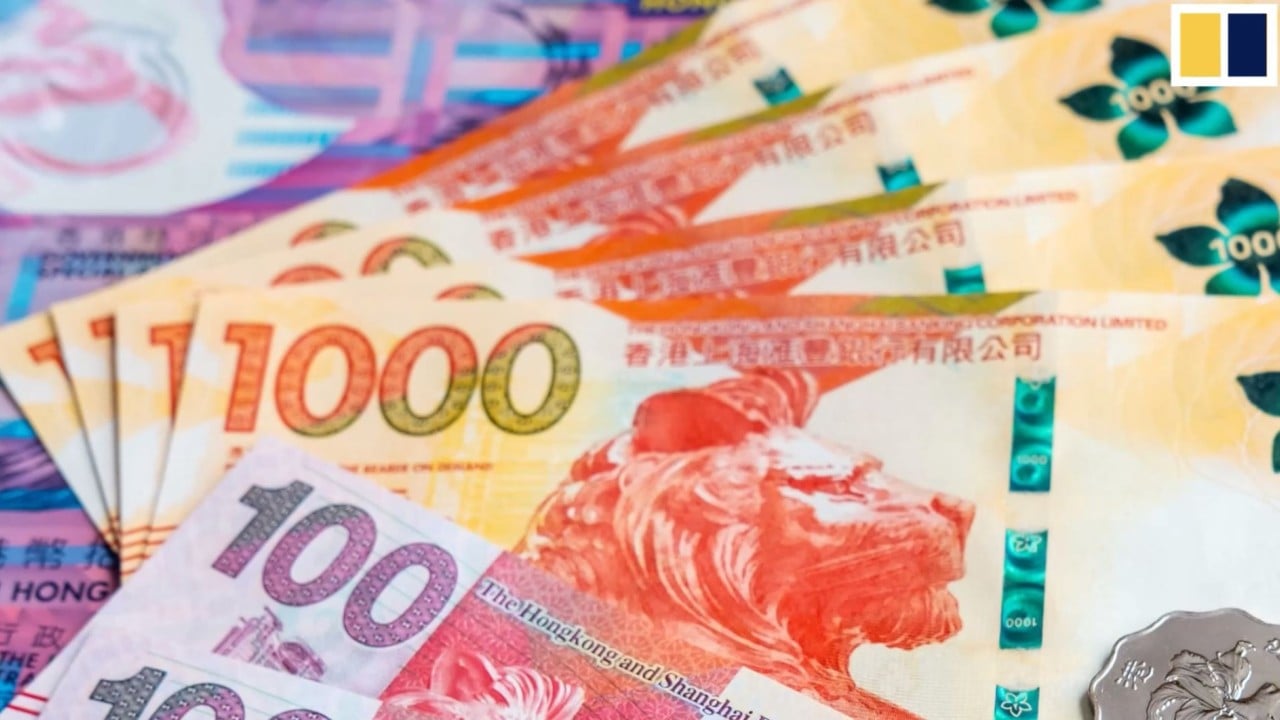
01:43
What is the Hong Kong Dollar Peg?
Trump aides rule out ending Hong Kong dollar peg to punish China for security law
- Idea dropped as some feared move would be difficult to implement and could end up hurting US
- Washington and Beijing continue to trade blows over South China Sea, coronavirus pandemic and human rights in Xinjiang
Top advisers to US President Donald Trump have ruled out undermining the Hong Kong dollar’s peg to the US currency as they seek to punish China for infringing on the city’s political freedoms, according to people familiar with the matter.
Aides at the White House and State department had weighed the possibility of limiting Hong Kong banks’ access to US dollars as a way of striking back at Beijing, Bloomberg News reported last week.
But they dropped the idea after advocates could not gather enough support, with those against the move concerned that it would be difficult to implement and could end up hurting the US, according to one of the people.
Hong Kong dollar peg: why city’s system is an important buffer
Beijing has repeatedly accused Washington of inappropriately interfering in China’s internal affairs.
“The president is not in a good mood about China,” White House economic adviser Larry Kudlow said on Monday in a Fox News interview.
Trump hints lack of interest in a phase two US-China trade deal
Hours later, the Trump administration rejected China’s territorial claims in the South China Sea, reversing a previous policy of not taking sides in regional disputes.
The White House referred questions to the National Security Council, which did not immediately respond to a request for comment.

